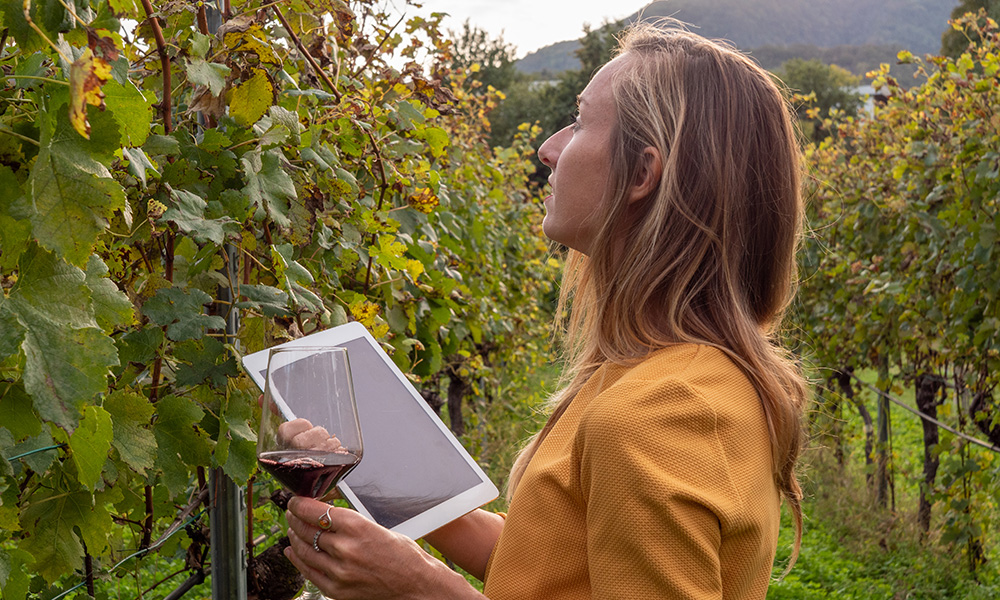
New UBCO research shows that while younger consumers are interested in wine, their approach is different to past generations.
It’s wine bottling season and new research from UBC’s Okanagan campus shows that younger sippers should be inspired, rather than lectured, during their tasting experience.
The international study, published in the Cornell Hospitality Quarterly, found that millennials and generation z—those between the ages of 18 to 40—appreciate wine more when they define it on their own terms and with the support of technology instead of learning with traditional terminology and analysis.
“The traditional way of teaching wine appreciation using a verbal lexicon is turning off and boring young consumers,” says Annamma Joy, professor in the Faculty of Management and co-author of the study. “With their spending power, it makes sense for winemakers to adapt the experience to better engage them as new customers.”
She says that these findings provide key marketing insights to the $9 billion Canadian wine industry.
Dr. Joy and her colleagues from Cornell University first tested how a holistic tasting approach compared to a traditional one with young wine drinkers with an average age of 24. The traditional group analyzed the wine’s taste by deconstructing flavour profiles and writing detailed descriptions. On the other hand, the holistic group, learned to appreciate wine tastes by drawing images and discussing them. Both of the groups enjoyed learning about wine, but those who participated in the holistic group engaged in a deeper, more thoughtful way.
“While new consumers might find the analytical approach effective at teaching them how to differentiate tastes, the holistic approach allows them to create a more emotional connection to the wine—bringing meaning beyond the test environment,” says Dr. Joy.
The next research step was to determine what references these young consumers use for wine information, for both new experiences and follow-up education. Generational differences in wine education were analyzed using the digital platform, QUINI. The number of online interactions increased with younger generations—millennials (24 to 40 years) engage more than generation x (41 to 56 years) and baby boomers (57 to 75 years). Also, as generation z (6 to 24 years) consumers reach drinking age, their online activity increases. The researchers also noted that the type of information preferred differs between generations, with older ones preferring traditional education and newer consumers turning to experiences such as wine-tastings and wine tourism.
“Our research shows that younger consumers are interested in wine, but their approach is different than what their parents experienced. Making learning fun and using digital platforms can increase their appreciation of wine and provide a positive path to developing future wine consumers,” says Dr. Joy.
“Wine needs a great story to attract the millennials and younger generations. If you don’t have one, you may be left with sour grapes.”